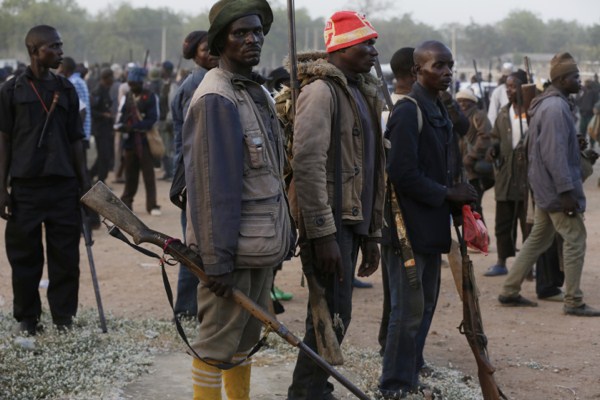The first weeks of 2015 have already brought repeated, shocking attacks by Boko Haram in and around Nigeria. Within the country’s northeastern state of Borno, the home turf of the proselytizing sect-turned-Islamist-group, militants massacred hundreds of civilians in Baga, site of a multinational military base. Suicide bombers attacked Maiduguri and Potiskum, the latter on three occasions. In a continuation of last year’s trends, Boko Haram’s violence spilled once again into northern Cameroon, where militants kidnapped dozens of children and adults in villages near Mokolo.
Some commentators, including Kenan Malik in the New York Times, argue that “jihadists have turned terror into an end in itself,” but there is a logic behind Boko Haram’s attacks. The group nurses ambitions of destroying the Nigerian state, especially in the northeast. This ambition is a long-term one: Even as Nigeria’s Feb. 14 general elections approach, Boko Haram is behaving as though it plans to trouble Nigerian authorities for years to come.
Boko Haram has always shifted tactics in response to changing behaviors by the state. Since launching its campaign of sustained guerrilla violence in 2010, its tactics have included prison breaks, robberies, assassinations, bombings, kidnappings, arson and more. When Boko Haram suspected the state of using cell phones to track it, its fighters destroyed cell phone towers. When the state imprisoned female relatives of Boko Haram’s leaders, the group responded by kidnapping women and girls. Contextualizing Boko Haram’s choices does not excuse them, but it does indicate that the group adapts when it sees opportunity, or when it reaches the limits of a given approach.

